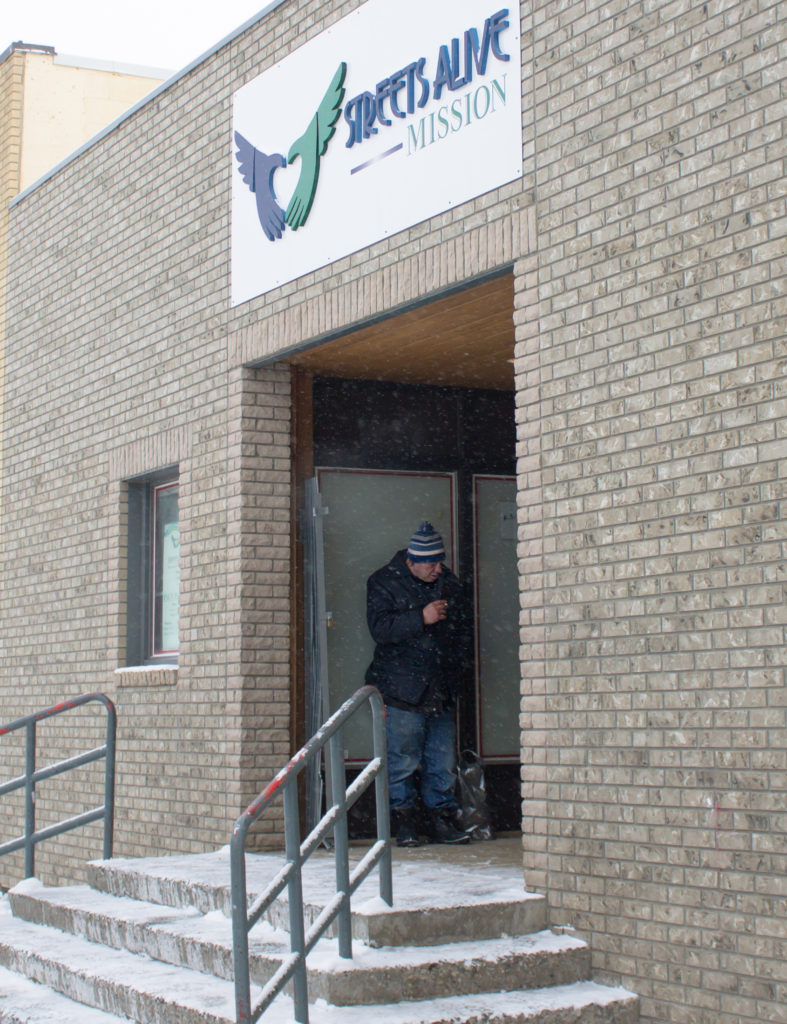Thanks to a local organization in Lethbridge, Alta., one man will no longer have to face a cold winter outside.

Noorin Chatur-Muhammad
Kicker
(LETHBRIDGE, Alta.) – It is hard to believe Damion Kirton was ever homeless. His English is perfect and he engages in conversation with a sharp wit. Yet, there was a time when Kirton, who recently moved to Lethbridge from Montreal, lived on the street without shelter or a salary.
“I grew up in a rough neighbourhood,” said Kirton. “I lived on the streets when I was about 15. Had to kind of fend for myself, kind of thing. I sold drugs to survive (which) led me down to a road of robberies and stuff like that, and drugs. I ended up partying and getting addicted to drugs at a young age. I then went to prison for a few years, got out and changed my life around.”
Eager for a fresh start, Kirton moved to Alberta and quickly found himself in a relationship. When the relationship ended, Kirton fell into an emotional spiral and without the resources, community or support to turn to, he fell “back into old roads.”
To his credit, Kirton had tried to access organizations for help in the past. Because of the stigma tied to his addiction and homelessness, he left. He was feeling judged.
Kirton was at the point of giving up when he was introduced to Streets Alive. Walking in for the first time, he soon felt at ease.
“I immediately felt welcome,” Kirton said. “It didn’t matter what I’d been through or my situation, you know, everyone was equal, everyone was the same.”
Peter Van Ewijk is the acting director of administration and finance for Streets Alive.
“Streets Alive starts out by being very practical in (caring for) people that are hungry,” said Van Ewijk. “The homeless, the transient, the less fortunate can come in for hot meals, food and clothing and so on. Then we try to build a personal relationship so that we can help them even further. Understand what it is that they’re struggling with whether it’s financial, whether it’s mental health, whether it’s addictions and so on, and then, we try to get them connected to the right help that’s available out there.”
Shortly after being introduced to Streets Alive, Kirton started to volunteer for them. What began with him serving food to the homeless every Saturday night, turned into him volunteering for the organization around-the-clock.
“I respect the people who come here and they respect me,” Kirton said. “This is real life. This is the real deal. The people who come through these doors, their pain is real. Their struggles are real, but so is their desire to make a positive change.”
Kirton is grateful for the opportunities that have been given to him by Streets Alive. He is currently enrolled in the organizations Exodus program, a life-skills program where students are given the mentorship they need to help them reach their goals. For Kirton, that goal is to become an addictions counselor, and to continue to give back to the organization that gave him a second chance.
According to the City of Lethbridge, homelessness is increasing due in part to the city’s escalating opioid crisis. The federal government’s second Homeless Partnership Strategy commissioned in April 2018 found that 223 individuals were counted as experiencing homeless: seven were without shelter, 136 were in emergency shelters, 75 were provisionally accommodated, and five were unknown. In 2016, only 89 people were included in the count.
For more information about Streets Alive and the services they offer, please visit: https://streetsalive.ca/




Be the first to comment